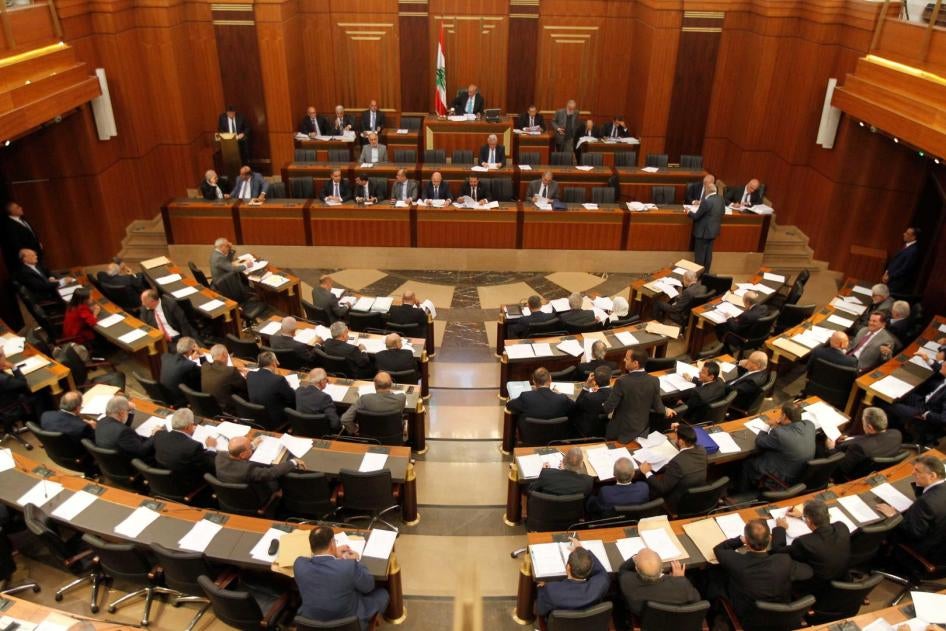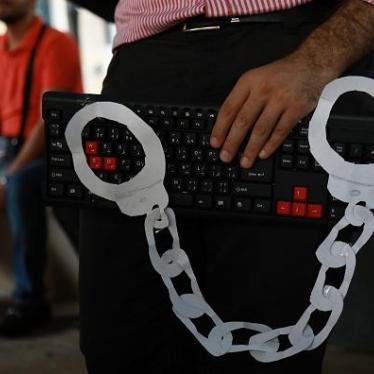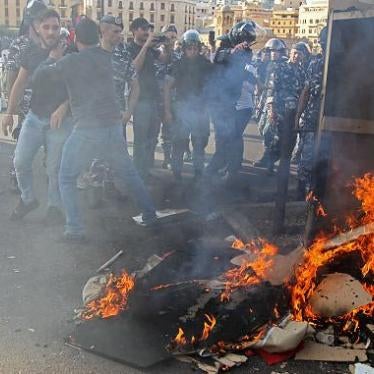Lebanon’s parliament has indefinitely postponed a legislative session which was due to take place on Tuesday, after protesters blocked the entrances to Parliament and several parliamentarians announced their boycott of the session.
Parliament was set to vote on two particularly controversial laws that have angered protesters: the amnesty law and a law establishing a court for financial crimes. Both laws would likely have further entrenched impunity, including for corruption, in the country.
Impoverished communities in the Bekaa, Hermel, Akkar, and Tripoli have long called for an amnesty law which they say would address their sense of having been wronged by the country’s justice system and also pardon people arrested or wanted on charges of petty crimes, drug crimes, and some terrorism offenses. But the broad draft submitted to Parliament would have also pardoned public officials accused of serious misconduct and corruption, including torture, beating protesters, and environmental crimes. Human Rights Watch has documented the disastrous impacts that impunity for these crimes has had in Lebanon, including deaths in custody, excessive force by security forces against protesters, and serious health risks resulting from pollution due to the authorities’ mismanagement of waste.
Parliament was also slated to vote on a law which would establish a special court for financial crimes and remove such crimes from the jurisdiction of other courts. Politicians claim a financial crimes court will meet protesters’ demands for accountability on corruption. However, the law states that the court’s decisions are not subject to appeal, which would violate fair trial guarantees, and also does not allow ordinary citizens to refer cases to the court.
The bills put before Parliament are just another example of how Lebanon’s ruling class has failed to meaningfully address protesters’ demands for justice. Instead of prioritizing the formation of a new government, a necessary step for the passing of new laws and which could start solving Lebanon’s economic crisis, parliamentarians are using their power to once again put themselves and public officials above the law.










